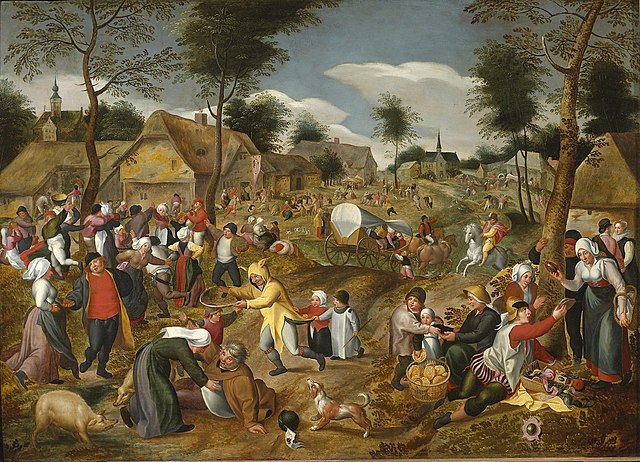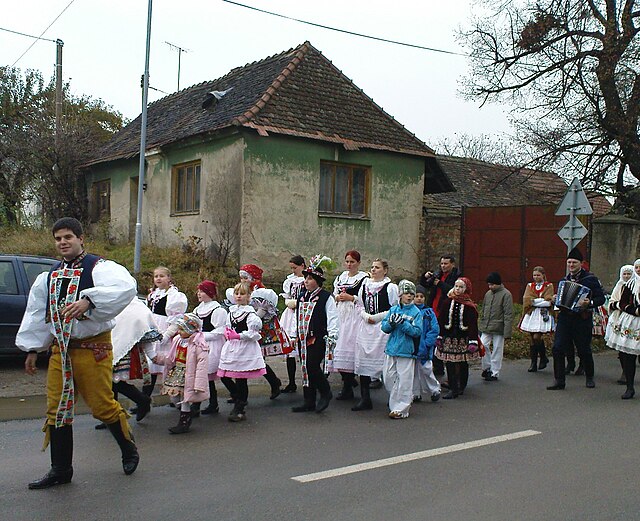Kermesse, or kermis, or kirmess, outdoor fair or festival usually organized for charitable purposes.
The term was derived from 'kerk' (church) and 'mis' (mass) in the original Dutch language term, and was borrowed in English, French, Spanish and many other languages. It originally denoted a mass and patronal festival held on the anniversary of the foundation of a church and in honour of the patron saint. Such celebrations were regularly held in the Low Countries, in Central Europe and also in northern France, and were accompanied by feasting, dancing and competitions of all kinds. The Kirchweih is the German equivalent, while church ale was a name of similar festivals in England. Many Catholic churches (parishes) still have patronal festivals of some sort for the anniversary of the church's founding, or the feast day of the saint it is dedicated to.
Kermesse by Marten van Cleve, c. 1591–1600
Fair on St Sebastian's Day, Jacob Savery, c. 1598
St George's Kermess by David Teniers the Younger (c.1664–1667)
Kermesse in the Moravian Slovak village of Bohuslavice u Kyjova (Czech Republic, 2009) – a procession through the village is led by a "stárek" (festival leader) wearing a national costume, yellow deer-skin trousers
A patronal feast or patronal festival is a yearly celebration dedicated – in countries influenced by Christianity – to the 'heavenly advocate' or 'patron' of the location holding the festival, who is a saint or virgin. The day of this celebration is called patronal feast day, patronal day or patron day of said location.
Feast of San Gennaro in Little Italy, New York





